I. FIREFIGHT
Bullets littered the night sky like candles, blistering the dark desert landscape as Matt Cavanaugh fumbled with his rifle. It was March 2003, and the United States was entrenched in Operation Iraqi Freedom. Cavanaugh was 22, a fresh graduate of West Point, and a second lieutenant serving in the Army’s Third Armored Calvary Regiment. Admittedly, he was scared, caught in a firefight alone in an armored fighting vehicle on the outskirts of Fallujah.
He struggled to maintain radio contact with reinforcements while fighting to keep the incoming insurgency away. The tracing bullets’ bright, piercing lights hindered his night-vision goggles, and without any backup he couldn’t fire the turret to pin them back further, nor could he escape inside to fire the larger machine gun without risking losing sight of the enemy.
As he went to reload his rifle, he dropped a magazine holding 30 bullets he desperately needed. And then … click … the last of his ammunition.
“Oh shit,” he thought. “This is over.”
He had done well to keep the enemy at bay, but how much longer did he have until they realized he was out of ammunition? Before he could map his next move, two Humvees arrived, part of the Army’s quick reaction force (QRF), which fought back the enemy and rescued him.
After serving two tours overseas, Cavanaugh returned home feeling “utterly alone at the bottom of a pit.” He had spent a quarter of his life, and nearly all his 20s, in the military either at West Point, training for war, or actively fighting in war. He felt saddened and disappointed having missed so much of his life that wasn’t tied to combat.
He found healing through running, which in turn gave him the physical health to help another person a decade later.
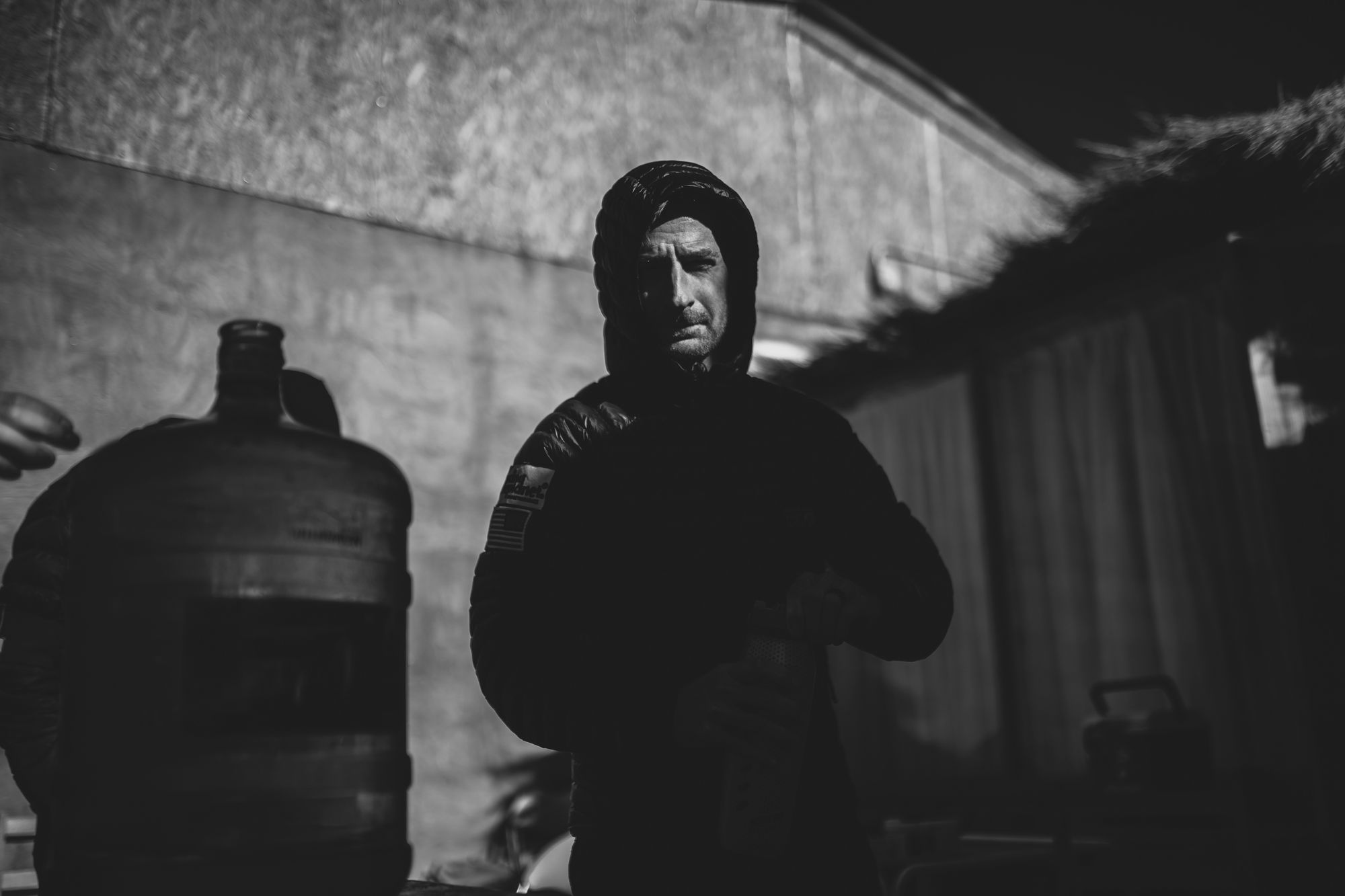
In September 2021, Cavanaugh stepped on an operating table prepared to save the life of a total stranger. He had cold-called Walter Reed National Military Medical Center offering to donate a kidney after years of consideration. After an evaluation, a nurse told him his kidney was “red hot” and a “10”— a prime candidate for donation. The moment wasn’t lost on him. Twenty years ago in Fallujah, in his greatest moment of need, he was saved. Now, he was coming to someone’s rescue.
“That same moment (at war) applies to so many people who feel as though they have expended every round of ammunition they have and it’s still not enough,” Cavanaugh says. “And then somewhere someone shows up to support them.”
Cavanaugh is one of more than 3,400 Americans who have donated a kidney to someone they don’t know and likely will never meet. He calls it an altruistic donation, and they’re made not for clout or praise but to better the world and help save the nearly 100,000 people awaiting a life-saving transplant.
After a three-hour surgery, which included a small scar he still bears today, surgeons removed Cavanaugh’s left kidney, packed it on ice, and sent it to Seattle, WA. When he woke up in ICU — groggy and nauseated — he felt deeply uplifted. By the time he was discharged the next day, he learned the recipient of his kidney had been released from the hospital, too.
“The world is full of awful stuff. And we can’t do much about most of it,” Cavanaugh says. “I can’t do anything about the fall of Kabul in Afghanistan. I can’t do anything about flooding in a particular part of the country. I can do something to save someone’s life through this means, and that struck me as really powerful. There are so many things in this life I can’t do, but this I can.”
II. DETERMINATION
The hum of the buzzing machines filled the otherwise quiet hospital room as Hilary Baude lay alone, full of trepidation. For eight weeks she had been on bed rest, largely alone with her thoughts and a journal of letters penned to her daughter, as doctors poked and prodded to ensure her daughter was still alive.
2/19/13
Ellie,
Pretty uneventful day today. Very lonely today. You were quiet today too, not moving around much…maybe you just miss Gracie as much as I do. I feel so cheated sometimes to not still have her. Any time I see something about twins, it breaks my heart. I will always wonder what she would have been like. I think a large part of her will live through you. I think about you two every second of every day. I am working on accepting the reality of this situation. It's so hard to let go of the vision you always had...a happy, healthy joyful pregnancy, being able to set up a nursery, have a baby shower, and celebrate life. Instead, I cry daily over what is to come and what has already been lost. Along with Gracie, I have also lost a sense of innocence and it's a struggle not to be mad about that. I am so grateful that you chose to continue fighting when everyone said you wouldn't. I have become aware of depths of pain, anxiety, and hurt that I never knew existed before you and Gracie, but also an incredible depth of love. It will only continue to grow.
I love you so much,
Mommy
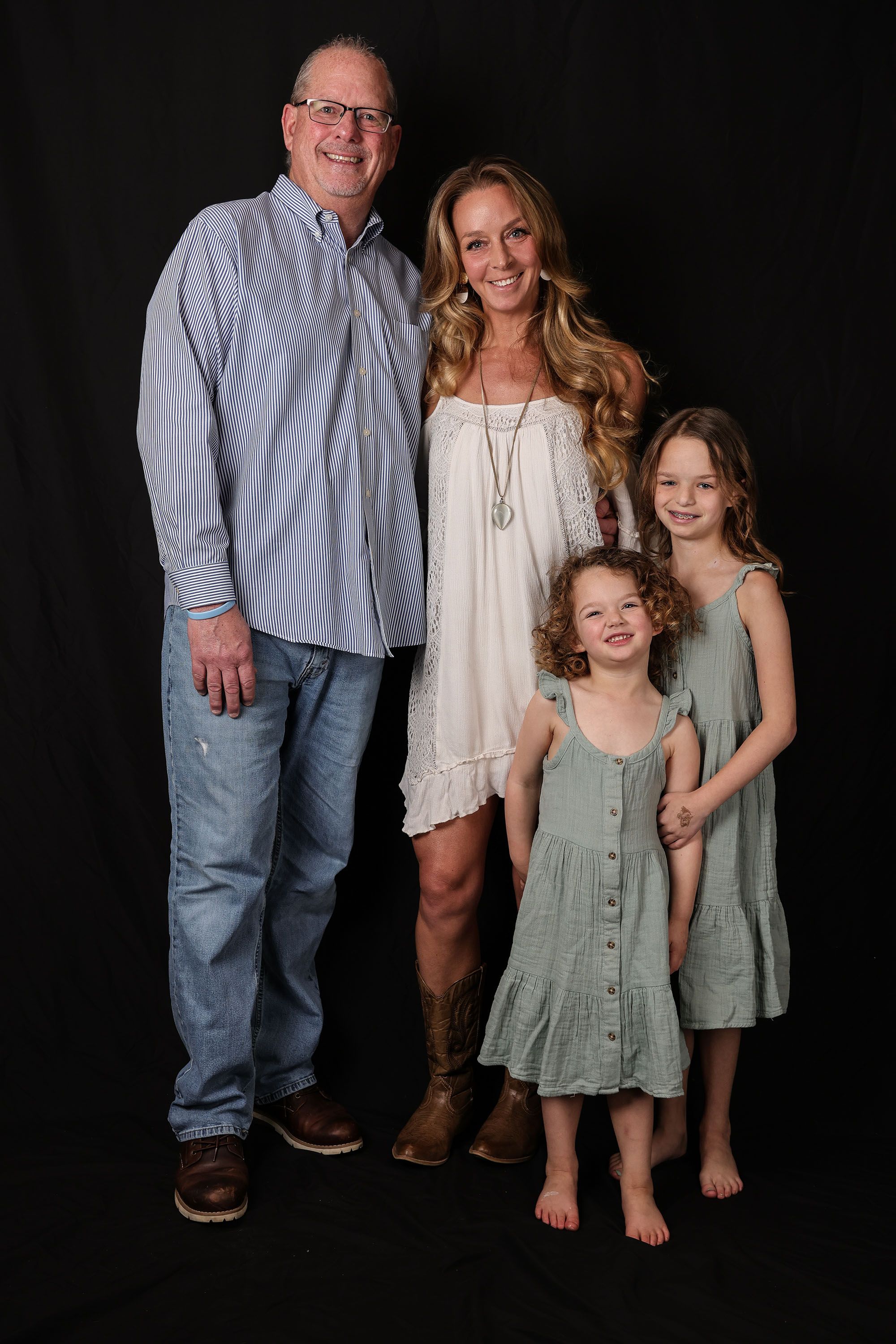
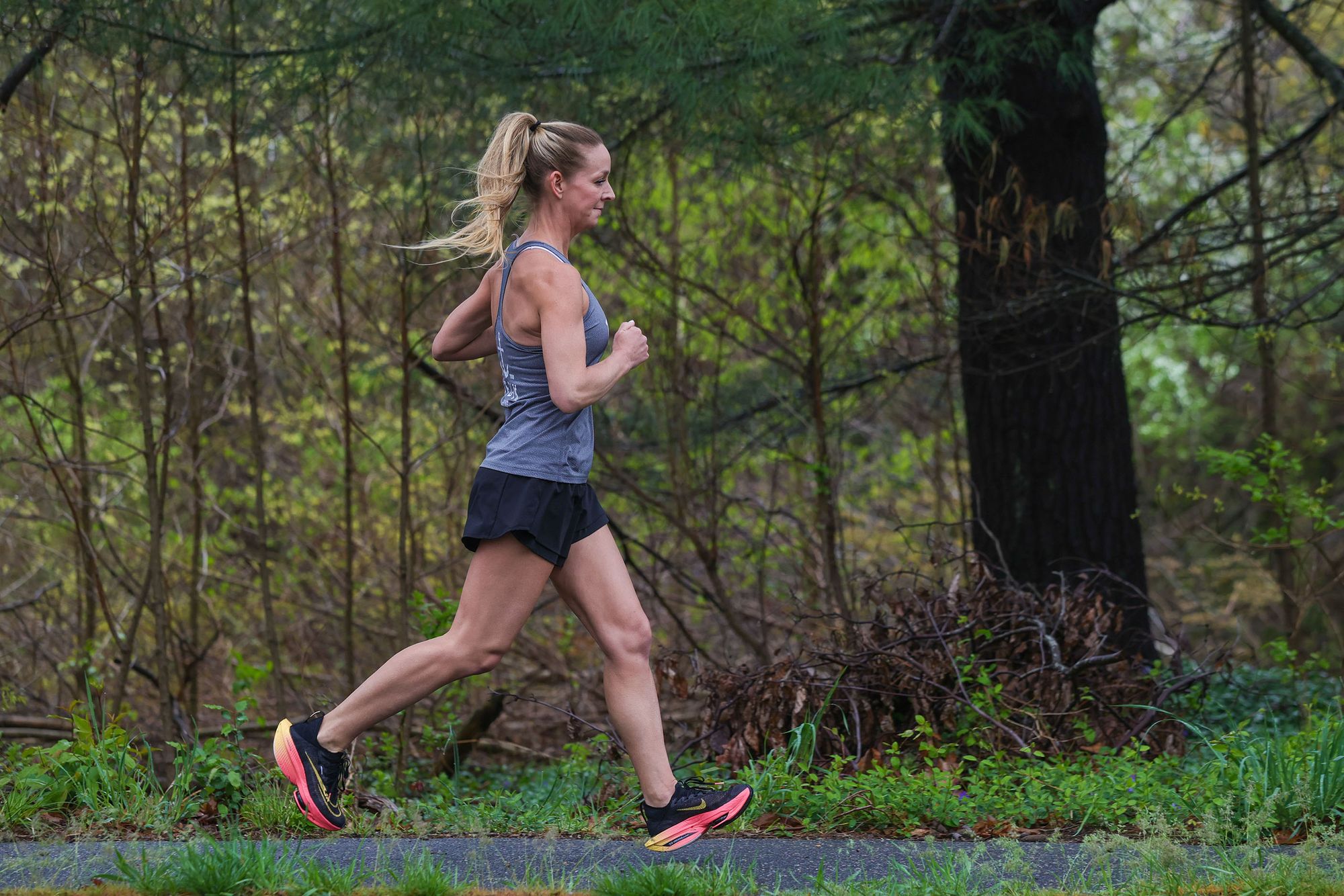
The Baude family today. Hilary drew strength from her athletic achievements as a swimmer to fight for Ellie. [Dayna Cass photos]
Baude and her husband, Jim, had undergone years of fertility treatments and faced multiple miscarriages before learning she was pregnant with twins. Their relief and excitement were replaced by sadness and fear around 18 weeks when one of their daughters, Gracie, died in the womb. Her living daughter, Ellie, stopped growing, and doctors feared she may not make it, either.
Baude and her doctors discussed terminating the pregnancy. Ellie was severely underdeveloped and would require weeks’ worth of care in a neonatal intensive care unit. Even if she survived, she was at risk of having cerebral palsy, a lifelong condition in which the brain can’t control muscle movement or maintain balance.
At first, Baude agreed. But as she lay in the quiet hospital room alone with her thoughts, she reconsidered. Ever since she was a little girl, she’s been determined to give her all. At 6, she started swimming. By 10, she was the top-ranked swimmer in the 50-yard butterfly and would later go on to Seton Hall University on a full ride. In her final collegiate meet, she qualified for the Olympic trials.
“I was always the kid who showed up early to practice or would stay after to have my coach look at my start, or my flip-turn, or my form,” Baude says. “I never wanted to get to a race and say, ‘I should have worked harder.’ So, I continually worked myself to exhaustion, always choosing to take the harder road.”
That determination meant giving Ellie everything she had.
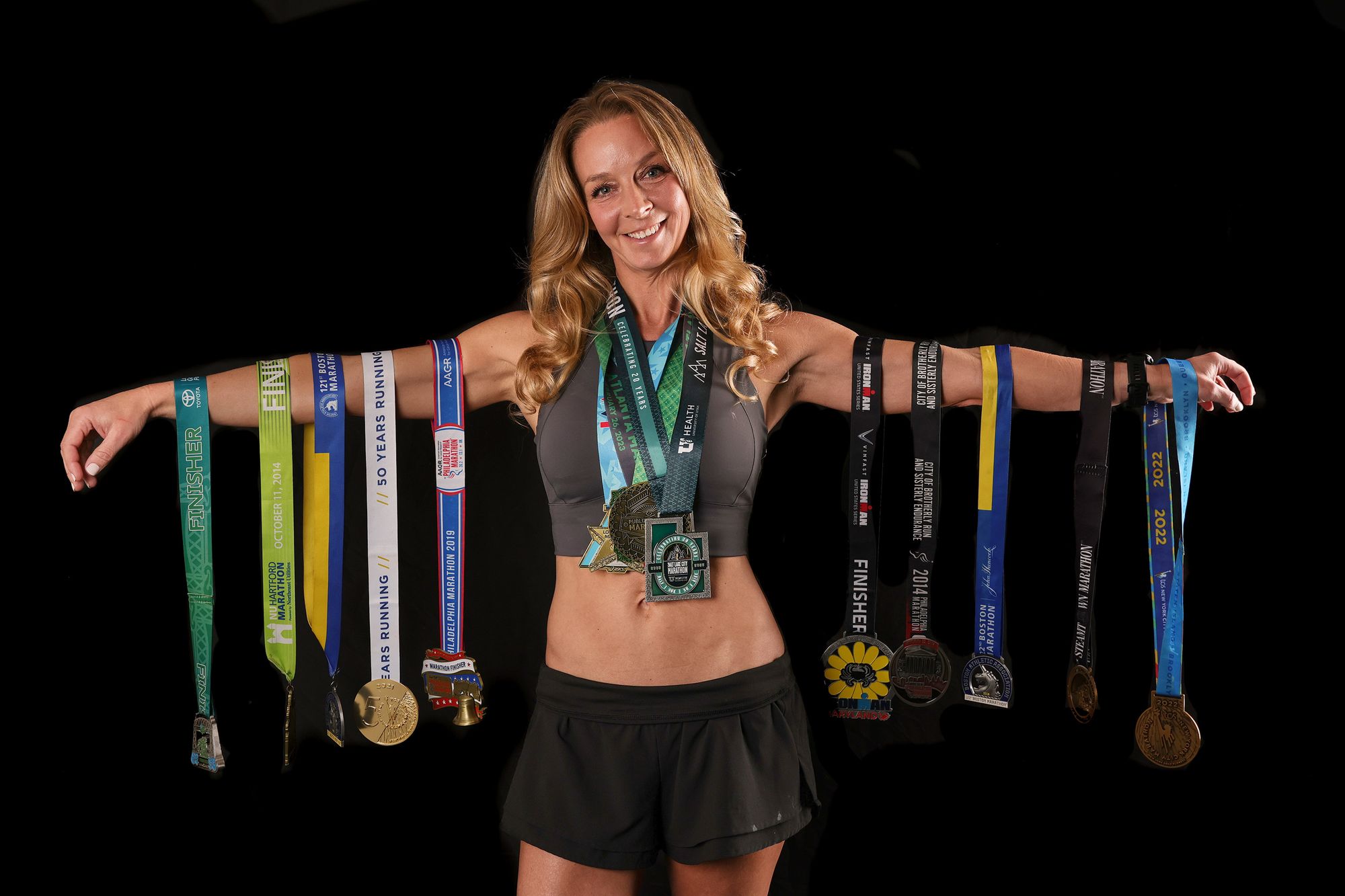
With marathons conquered, she's looked next at Ironman competitions. [Dayna Cass photos]
“I didn’t cancel it because I had hope for her survival,” Baude says. “I needed to be able to say, ‘I gave her everything I could.’ And in those following months, I would sit alone with my pain, alone in my head in the hospital room, gathering up every bit of strength needed.”
4/11/13
Ellie,
Well, the big day is finally here. I can't believe it. We went for your ultrasound today and you have stopped growing. So, the doctors say it's time for us to meet you, baby girl. We are so proud of you. We never thought this day would come. We thought you would not make it past 21 weeks, but no one knew how strong and tough you are. None of those doctors knew what a warrior you are. You had your own plans, and no one could deter you. Those are the kinds of characteristics that will carry you through life and make you successful. You are a brave and courageous girl, and not only are Daddy and I proud of you, but I know Gracie is too! We love you more than words can say!
Love,
Mommy
Ellie was born at 33 weeks, weighing in at 2 pounds and 3 ounces. She was born without skin on her legs — an ultra-rare condition that required doctors to whisk her away before Baude had a chance to hold her. But when Baude heard her daughter’s wails, she cried happy tears that Ellie survived.
Ellie underwent weeks’ worth of treatment in the NICU as doctors treated her legs and nurtured her tiny body. As their daughter grew, more bad news struck the Baude family: Jim had early-stage prostate cancer.
Baude admits those days were “a very dark place to be.” She began running to help clear her mind and process her grief. It wasn’t long until she signed up for her first marathon, something she vowed she would never do. “Only crazy people run marathons,” she says, having now completed 14 with another nine planned, including two Ironman triathlons.
As Baude’s family healed, she watched a news story of a man who beat cancer but lost both kidneys. Marc Weiner, she learned, was on dialysis to filter the toxins from his blood — the essential role of the kidneys — and Baude felt called to help. She was healthy, she reasoned and related with his family’s struggles and their desperate pleas.
“I thought, ‘I have the cure right here for him,’” Baude says. “I would have given anything for anyone to be able to help my family in that way.”
Though her kidney wasn’t a perfect match for Weiner, in May 2021, she stepped on her own operating table and donated to a total stranger. Through the National Kidney Registry’s voucher program, she offered Weiner a voucher that sent him to the top of the donation list to receive a perfect match when he was healthy enough for surgery. Weiner received his kidney on April 25 this year.
Baude’s family is healthy these days. Ellie is 10 years old, Jim is in remission, and she quickly recovered from her surgery. They’ve also welcomed 3-year-old Josie. Baude says her donation gave her a new perspective on life.
“I went into it to help someone else in a way that I wish somebody could have assisted my family,” she says, “but I came out of it with healing that I did not anticipate.”
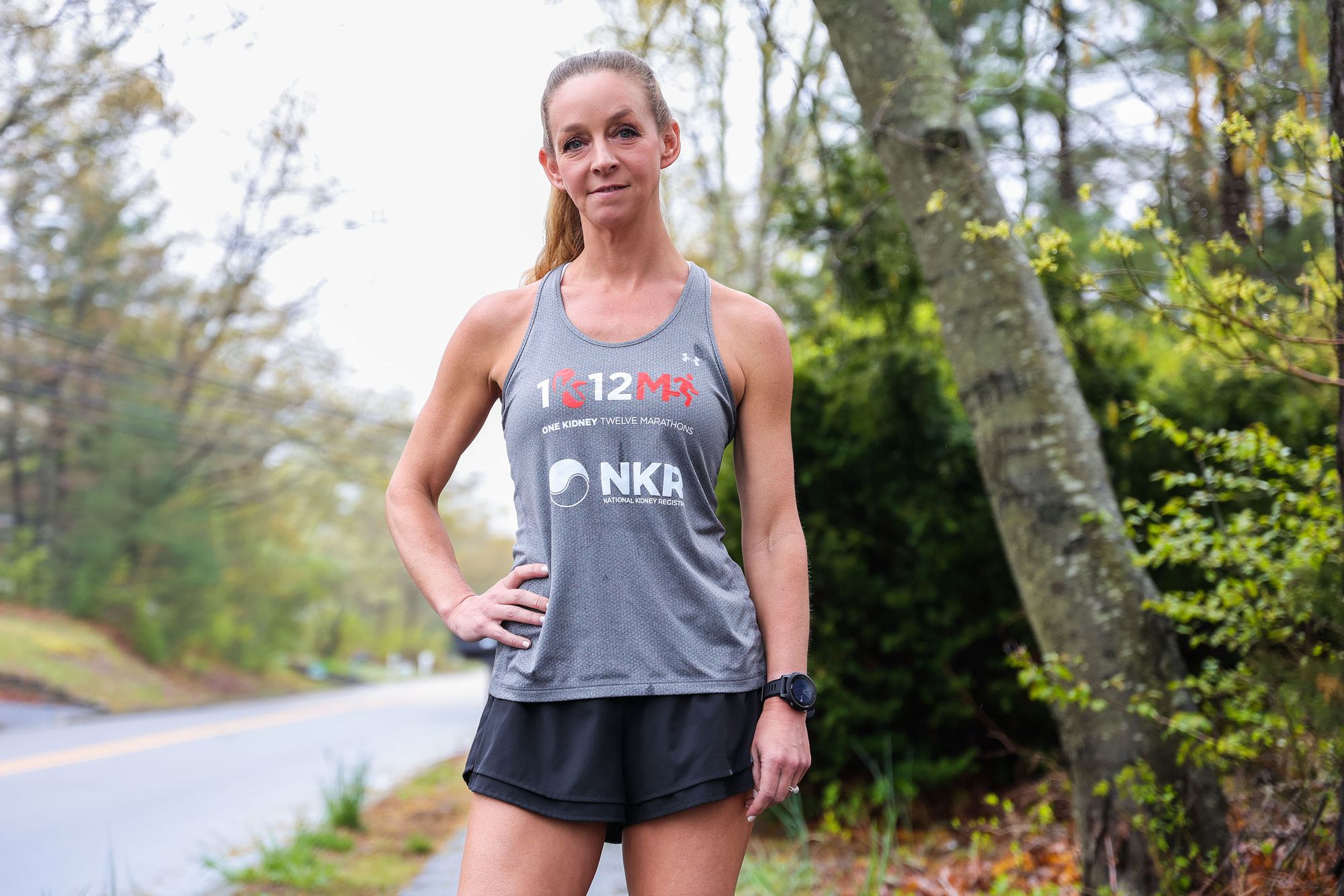
III. 1K12M
Matt Cavanaugh, now 43 and residing in Park City, Utah, set out on a new mission after his donation: To fracture the myth that donors are somehow degraded.
“My life is no less, and I want to prove that,” he says.
He partnered with the National Kidney Registry and embarked on a treacherous journey for even the most elite athletes: a series of 4 ultramarathon races spanning 155 miles each across the world’s largest deserts. “Brutal conditions for a kidney,” he says. Only a tent and water were provided to him; the rest, such as his food, he had to carry during the race.
He ran through the red plains of the Namib Desert in South Africa, along the vastness of the Caucasus Mountains in Georgia, the large sand dunes of the Atacama Desert in Chile, and amongst the icebergs and penguins in The Last Desert in Antarctica.
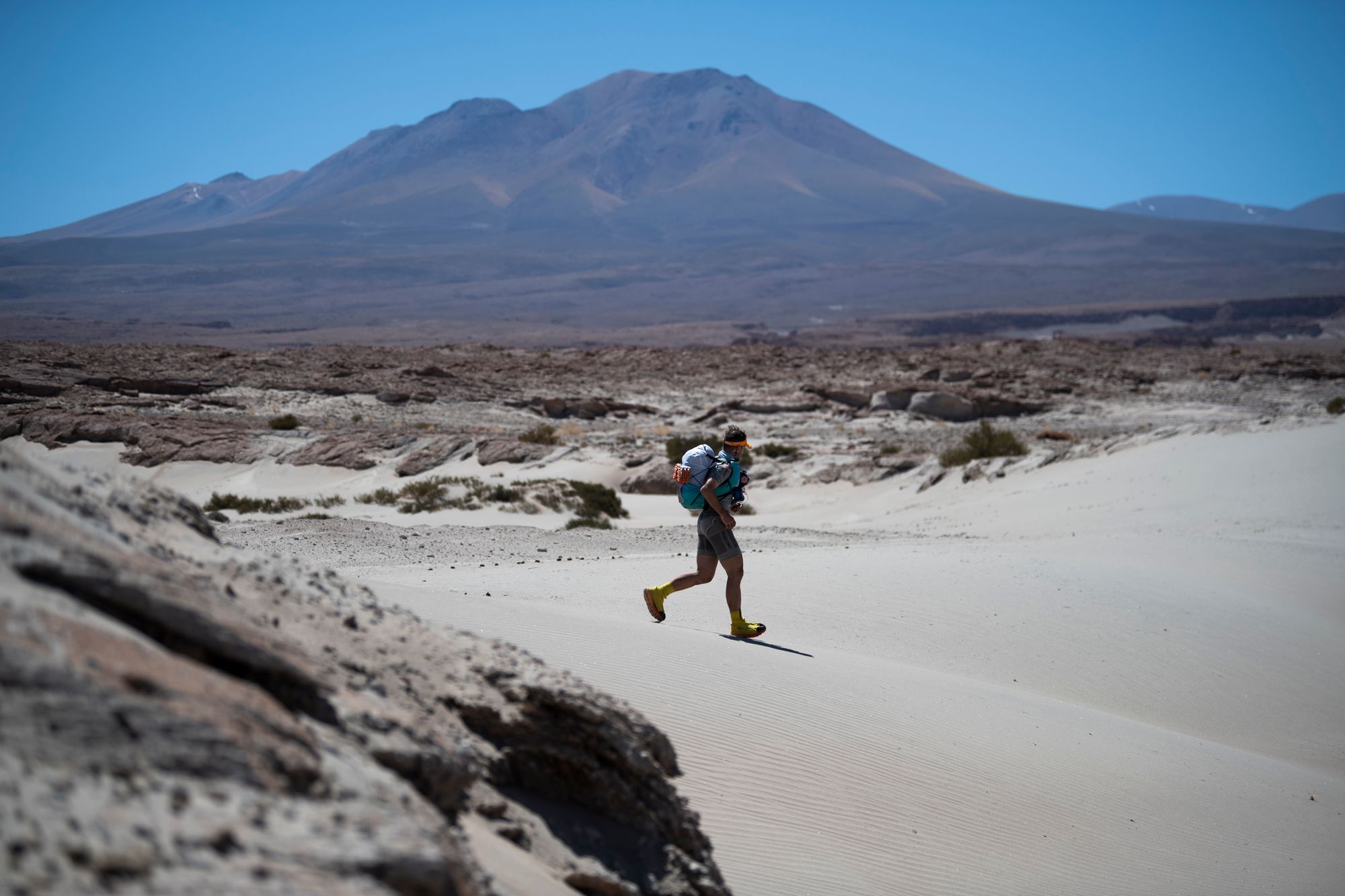
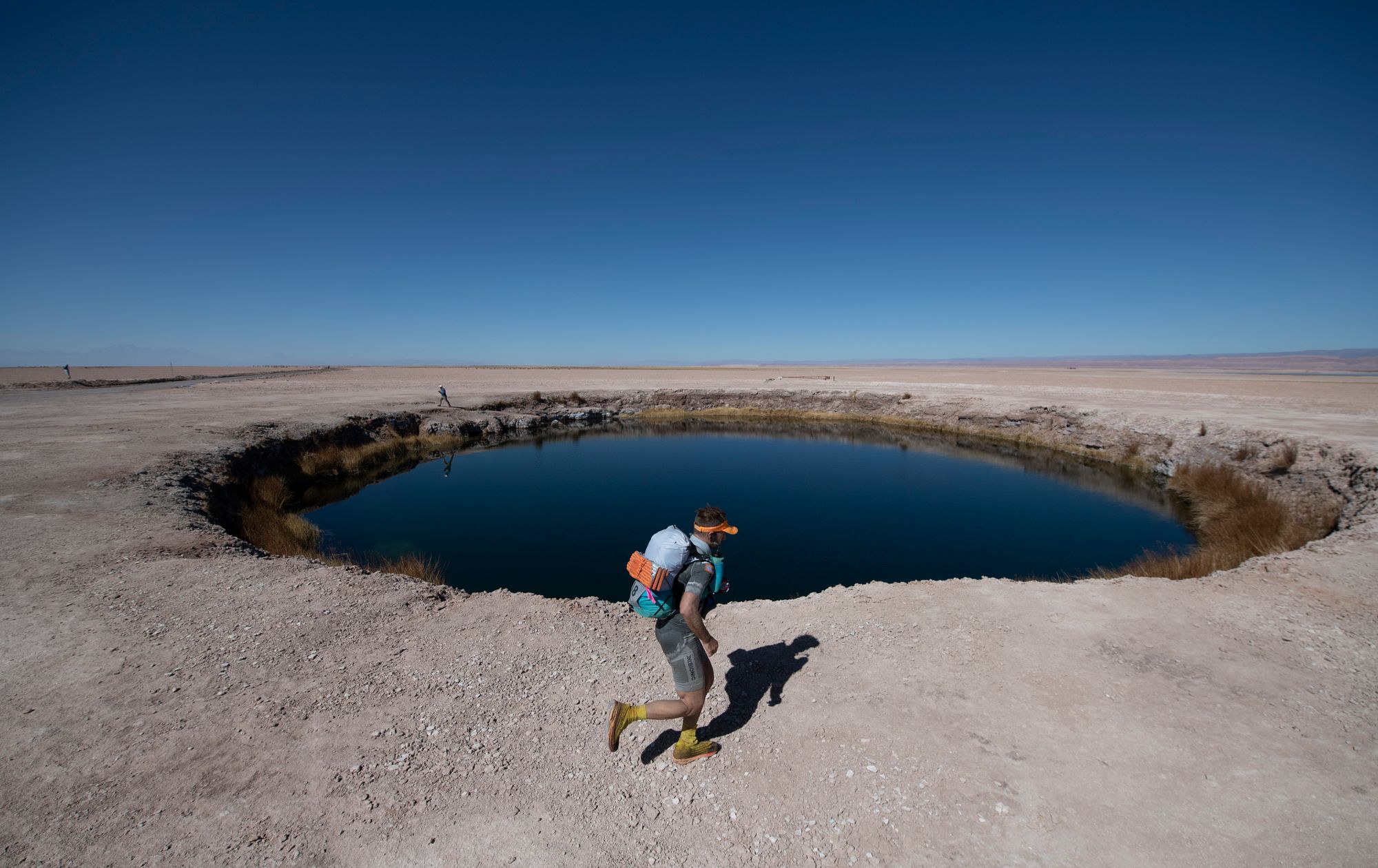
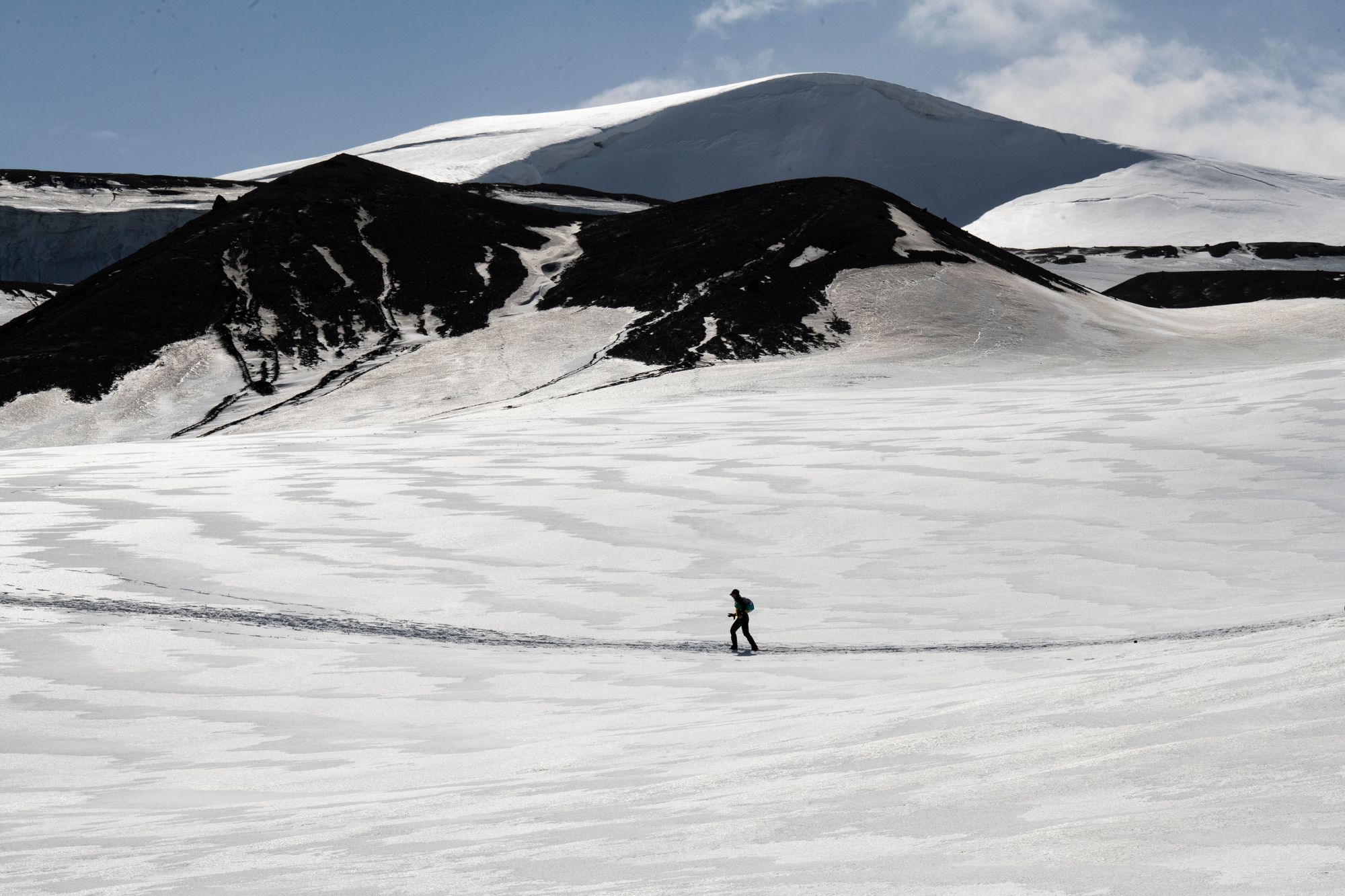
Cavanaugh has found purpose in his journey: highlighting that living donors can overachieve. [Thiago Diz photos]
Not only did he win the race in Antarctica — “which is something I’ll probably put on my tombstone,” he says — he became the fastest American to complete the ultramarathon series and the first living kidney donor to do so.
After the desert races, Cavanaugh wanted to keep the momentum running. He met Baude, 40 and from Waterford, Connecticut, at a donor gathering last year in the Florida Keys while proposing an idea. He planned another demanding journey: 12 marathons in one year in U.S. cities with transplant centers to raise awareness for altruistic kidney donations. Baude eagerly joined. They’ve partnered with the National Kidney Registry and are calling their journey 1K12M, or 1 Kidney 12 Marathons.
“We want to bring attention to living kidney donations to more Americans,” Cavanaugh says. “Because unlike many other diseases out there, we don’t need a miracle cure. The cure is walking around in all of us.”
After finishing the Salt Lake City Marathon in April, Cavanaugh received an email from the grandfather of a 12-year-old boy who, the same weekend, received a kidney transplant. Without the awareness raised by efforts like 1K12M, the grandfather wrote Cavanaugh, his grandson would never have received a kidney he so desperately needed.
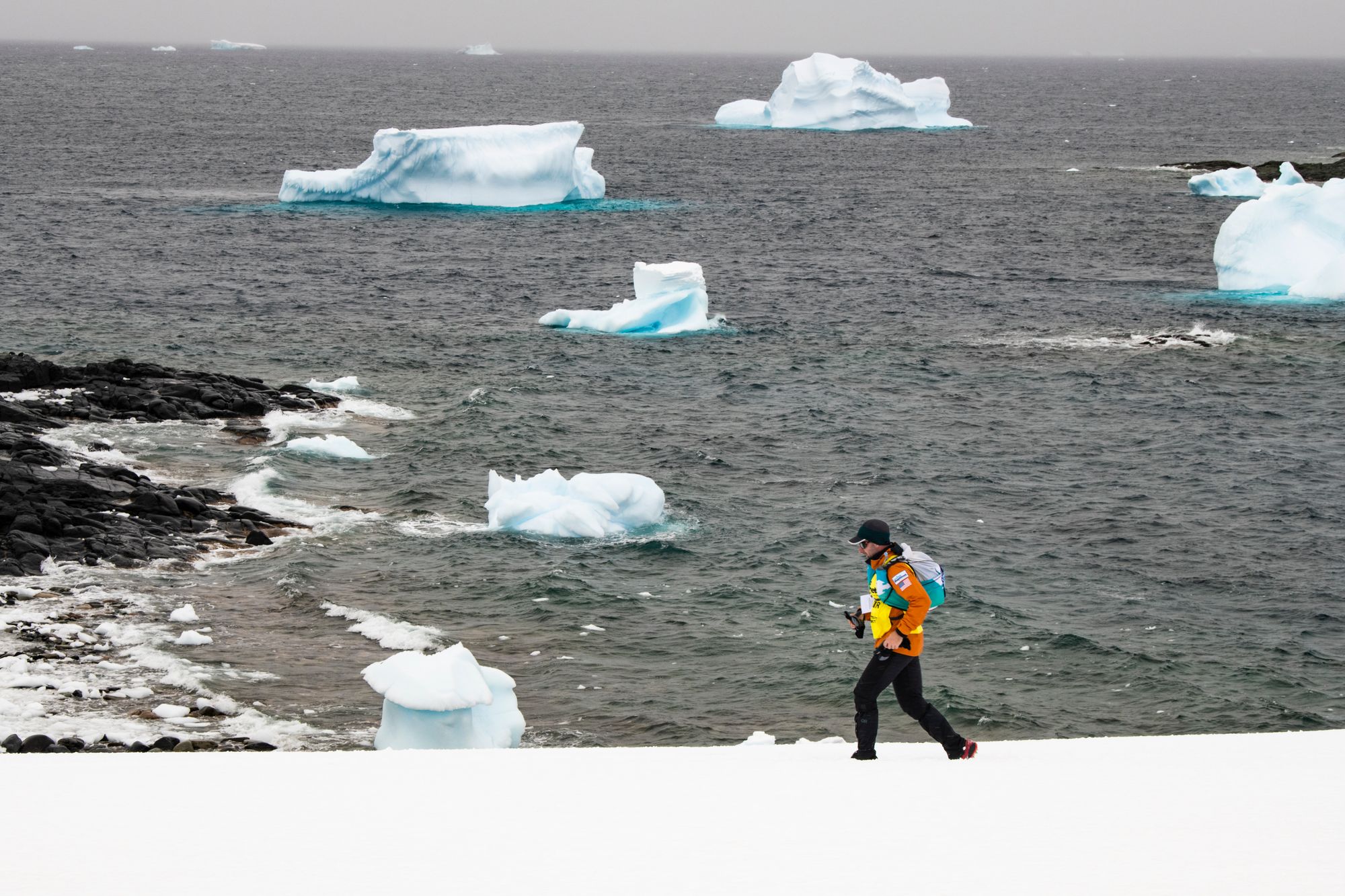
Matt Cavanaugh left the military, but his adventures continued. [Thiago Diz photo]
“We may never know or have the opportunity to meet his donor, but we are eternally grateful for this gift of life for Zack,” the grandfather wrote. “Next year, we hope to bring Zack … to meet all of you and express our sincere thanks to you and the 1K12M team.”
The email floored him.
“How can you stop running when this might be the impact,” he says.